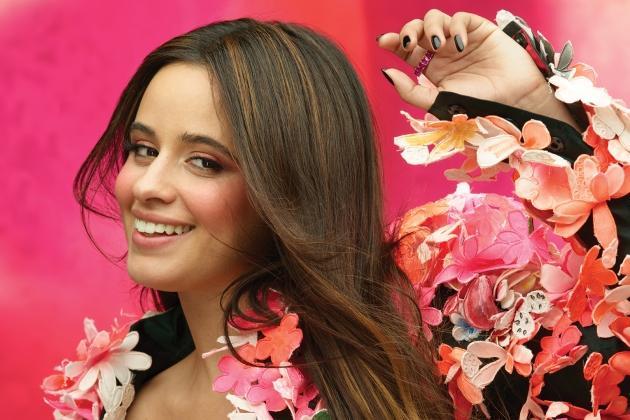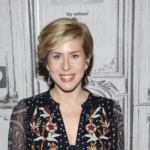Camila Cabello knows a thing or two about idol worship. As a singer who got her launch on a television show — the short-lived U.S. version of “The X Factor” — she’s been in the spotlight for the better part of a decade. And even if fame had been a goal (spoiler alert: it wasn’t), career trumps notoriety, and family, or “Familia,” as her third studio album is aptly named, comes first.
“All the people that you put on a pedestal are having nervous breakdowns,” says Cabello matter-of-factly. “It’s just the human condition.”


More from Variety
Where her life is concerned, at this point in time, confidence is key. So it’s no surprise that she’s placed importance on being decisive. Leaving behind the musical restrictions of her past, she has the track record to allow herself such liberties — Cabello’s hits include 2017’s “Havana,” which has been streamed in the U.S. nearly 41 million times, and 2019’s “Señorita” (featuring her ex, superstar pop singer Shawn Mendes), with 39 million streams, according to entertainment analytics company Luminate.


Jill Greenberg for Variety
“Before, with the first couple of albums, I’d be like, ‘What do you think? What do you think?’ and now I don’t send my music to that many people anymore,” she says. “Like, it doesn’t matter if you love it. If I hate it, why am I out there promoting it?”
The difference between her first and her latest release? Cabello now knows there is no right way to say no. The real trick, divulges the Cuban-born singer, “is to just say it.”
“If I can’t stand behind [a song] and want to perform it, let’s not put it out, because it’s just going to turn into some weird thing where I never wanna fucking sing it again, and it’s all because I didn’t listen to myself,” she says.
Although it’s not obvious from such swagger, “Familia” sees Cabello at her most grateful — appreciative of her team, her supporters and the Latin-infused rhythms of her roots. Returning to the familiar sounds of her childhood helped the 25-year-old find healing.
Her approach involved taking the wheel on how and with whom she worked. She tapped artists Maria Becerra and Willow Smith to incorporate the solace of sisterhood “and to explore one another’s experiences,” she says, and steer her lyrics of heartbreak and self-doubt. Cabello also recruited repeat collaborator Ed Sheeran, who is someone she knew she “could kick it with” but also a music maker that she could depend on to keep the focus in creating a cohesive album, as opposed to a collection of songs. The pair’s efforts yielded lead single “Bam Bam,” a breakup song that pulls stylistic influence from Celia Cruz and Marc Anthony — two of Latin America’s most respected artists — and has the uncanny ability to make you want to dance and cry.
“Ed has been a good friend for a long time and is somebody I super respect as a songwriter,” says Cabello. “He’s always looking for the best idea [and] doesn’t really beat around the bush — he’s super direct, and I’m like that too. There’s no ego, which is the best way to work.”
Although publicly opening up about heartbreak is in its own way excruciating, Cabello says she was able to muster emotional bravery in the vocal booth. “I went in and just kind of talked about my anxiety,” she explains. “My collaborators [would ask], ‘What was this line about?’ I was like, ‘Eeek! I only talk about this with my therapist and, like, my mom.’”
Eventually, the anxiety that came with telling her truth eased as the music took shape with what the artist calls her “dream team.” She says of “Familia” co-producers Ricky Reed and Scott Harris, “Anytime I would open up to them, I’d be like, ‘I felt insecure about this today,’ and they would respond like, ‘You’re talking that real shit!’”
That “real shit” included a public (and amicable) breakup with Mendes, but her heart also goes out to others. Wellness has long been top of mind for Cabello, and she’s shared that belief as an advocate for mental health, partnering with Movement Voter Fund to launch the Healing Justice Project — an initiative that provides mental health and wellness resources to youth activists in an effort to break intergenerational trauma and violence.
Asked to describe the most important lesson she’s learned these past few years, when she weathered a pandemic and out came “Familia,” Cabello sums it up in one word: “integrity.” Applying the “no ego” formula to almost every aspect of her life, she says fans will continue to get to know her “most authentic self” on future projects — “and that doesn’t mean it all has to be positive music. I want to explore darker parts of [the] psyche and have that be a healing thing.”
Styling: Rob & Mariel/Forward Artists; Makeup: Patrick Ta/PRTNRS; Hair: Dimitris Giannetos/The Wall Group; Manicure: Emi Kudo/Opus Beauty/OPI; Red Dress (Cover): Dress: Valentino; Earrings: Candy Ice; Flower Top: Top and pants: RVDK; Earrings: Candy Ice; Rings: Levian and Candy Ice
Best of Variety
Sign up for Variety’s Newsletter. For the latest news, follow us on Facebook, Twitter, and Instagram.




